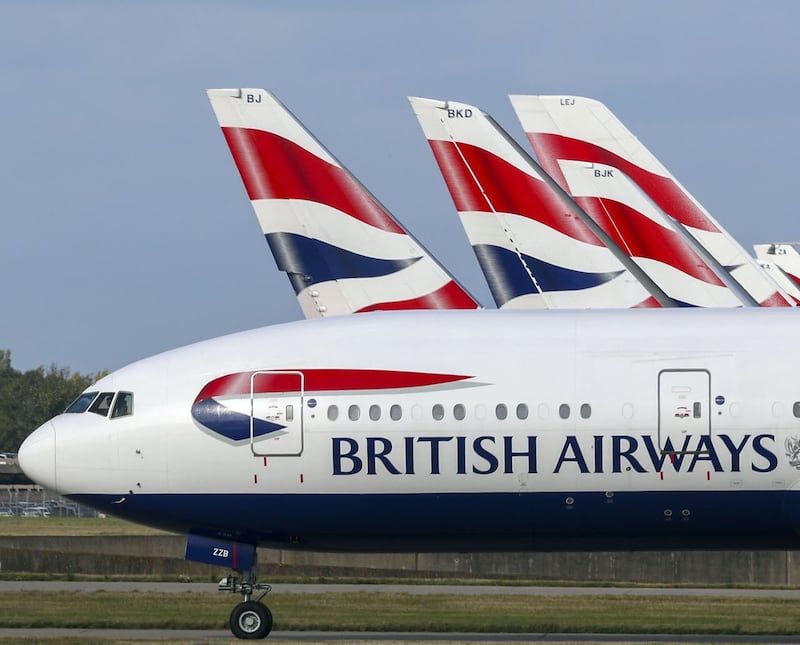Rival countries are “getting ahead” of the UK in developing greener jet fuel, the boss of British Airways has warned.
Chief executive Sean Doyle urged the Government to consider what other nations are doing to encourage domestic production of sustainable aviation fuel (Saf).
Transport Secretary Mark Harper insisted the UK is “on track” to meet its target of having at least five commercial Saf plants in construction by 2025.
Saf is made from sustainable sources such as agricultural waste and used cooking oil, meaning it uses 70% less carbon than traditional jet fuel.
It is seen as vital to reduce the aviation industry’s carbon emissions but is currently several times more expensive to produce.
Speaking to an audience of aviation executives at the Airlines 2023 conference in Westminster, Mr Doyle said: “We’re struggling to really just get the ball rolling and getting plants built.
“Maybe we need to look at what other jurisdictions and governments are doing, who are getting ahead of us in that regard.”
The US has introduced a tax credit scheme to lure investors in Saf production.

Under the Department for Transport’s (DfT) Saf mandate, at least 10% of the fuel used by airlines in the UK must be made from sustainable feedstocks by 2030.
Without UK Saf production, meeting the mandate will rely heavily on imports.
There have been calls for the Government to introduce a way of reducing the difference in price between Saf and traditional jet fuel.
Mr Harper, who also appeared at the Airlines 2023 summit, said a consultation on a “revenue certainty mechanism” for Saf producers will be launched “soon”.
The Cabinet minister acknowledged “we must build Britain’s Saf base”.
He went on: “Recent years have shown the dangers of over-reliance on energy imports, holding us hostage to the whims of foreign tyrants.”
Mr Harper insisted the UK has invested “significant amounts of public money” into developing Saf, and is “not complacent”.
Last week the DfT awarded a total of £53 million to nine projects in the latest round of the Advanced Fuels Fund competition to develop Saf.
Saf can currently be used in jet engines to a maximum blend of 50% with kerosene without the need for any modifications.
Virgin Atlantic will operate the first transatlantic flight powered by 100% Saf from London Heathrow to New York JFK on November 28 to demonstrate the effectiveness of the fuel.
Mr Harper, who will be among the passengers onboard, described the flight as “historic” and claimed it “could unlock the future of aviation”.



